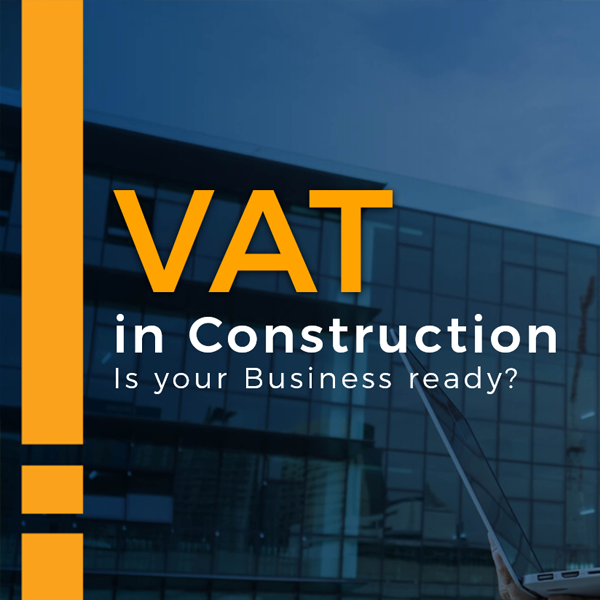How to choose ERP for the construction industry: The elements your software must have
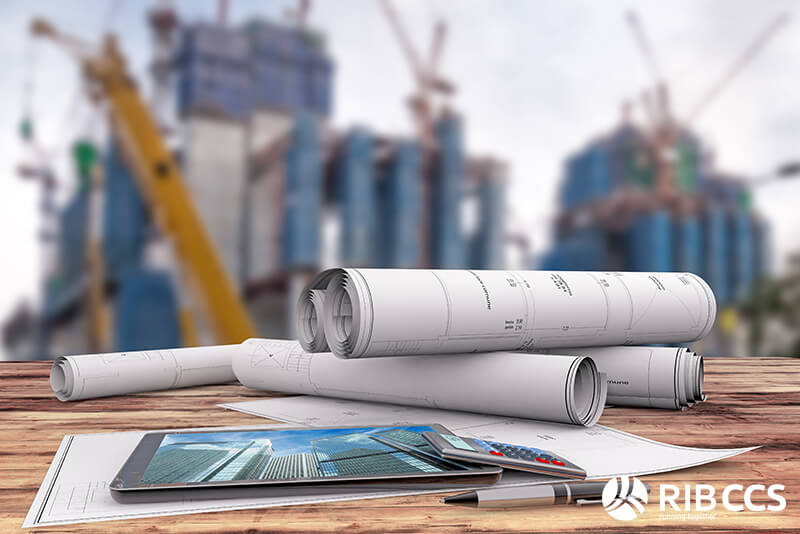
The selection of an ERP system is a major undertaking, even more so in the construction and building industry. The additional complications involved in focusing on agile project management and cost accounting are more complex than they might at first appear, but the biggest hurdle is in the more fundamental difference. A standard ERP will concentrate on ‘items’ (products being sold for example), whereas construction ERP systems need to track and manage what happens to such items and how, when and in what quantity they need to be used in a larger overall project.
Let’s consider some of the elements your potential construction ERP system should have.
1. They are in no way all the same:
Be sure your chosen ERP was designed for and by construction professionals. The challenges faced in managing building and construction are infinitely more complex than manufacturer or a retail outlet might face. Make sure you select a product such as BuildSmart that has full functionality and integrated modules for everything including (but not limited to) budget, planning, financial management, inventory control, tenders and, in fact, any other function or element of your end-to-end process that should be covered.2. Time is of the Essence:
Resource management has remained a significant challenge for construction professionals. The market leading ERP solutions will give you access too and even highlight the right data, at the time you need to review it. By that, we mean in real time and in good time, to make sensible and agile business decisions, to more effectively utilize your resources to maximum effect. Better efficiency and real time information also allows your business to be more accurate and detailed in forecasting, another area where large construction projects have been proven to shave significant costs in both actual resources and time, by using the best tools available.3. Managing the Fleet:
More than a form of booking engine, fleet management for your construction company needs to be proactive in ensuring your very costly and ‘in demand’ equipment is not sitting idle or placed for use in locations where days are lost in moving them around different sites. Your construction ERP will need to employ an advanced fleet management section that provides fleet management and cost accounting as a given. It will also need to factor in preventative maintenance looking after both periodic and scheduled maintenance whilst calculating, measuring and managing all costs associated with the fleet.4. Who’s who?:
Now that you know what to look for and are getting to the point of choosing your construction ERP, why not learn from others mistakes (or leverage their experiences to your advantage at least). Consider who is using the product you are thinking of putting in place and why. Does the provider you are considering have a successful track record of installing and embedding their software into successful construction firms and what were the experiences they have had? BuildSmart, by CCS, has been designed and regularly enhanced from User experience and feedback for over 2 decades and has been employed in some of the worlds’ most iconic builds. Make sure you have clear expectations on what you need and want your software to deliver then cross reference that with what your competitors and those you aspire to compete with are leveraging. Never be afraid to ask others what their experience was, in putting CCS BuildSmart into operation.Although these elements can arguably be considered ‘the big 4’, in reality, there are literally thousands of elements that go into making construction and building specific ERP systems a game changer for your business. Market leaders such as CCS, with Candy and BuildSmart, have been at the cutting edge of the development and utilisation of modern construction software and can answer all of your specific questions and concerns.
Most Recent
Ready To Take Your Business To The Next Level?
Let's talkDownload our free Ebook
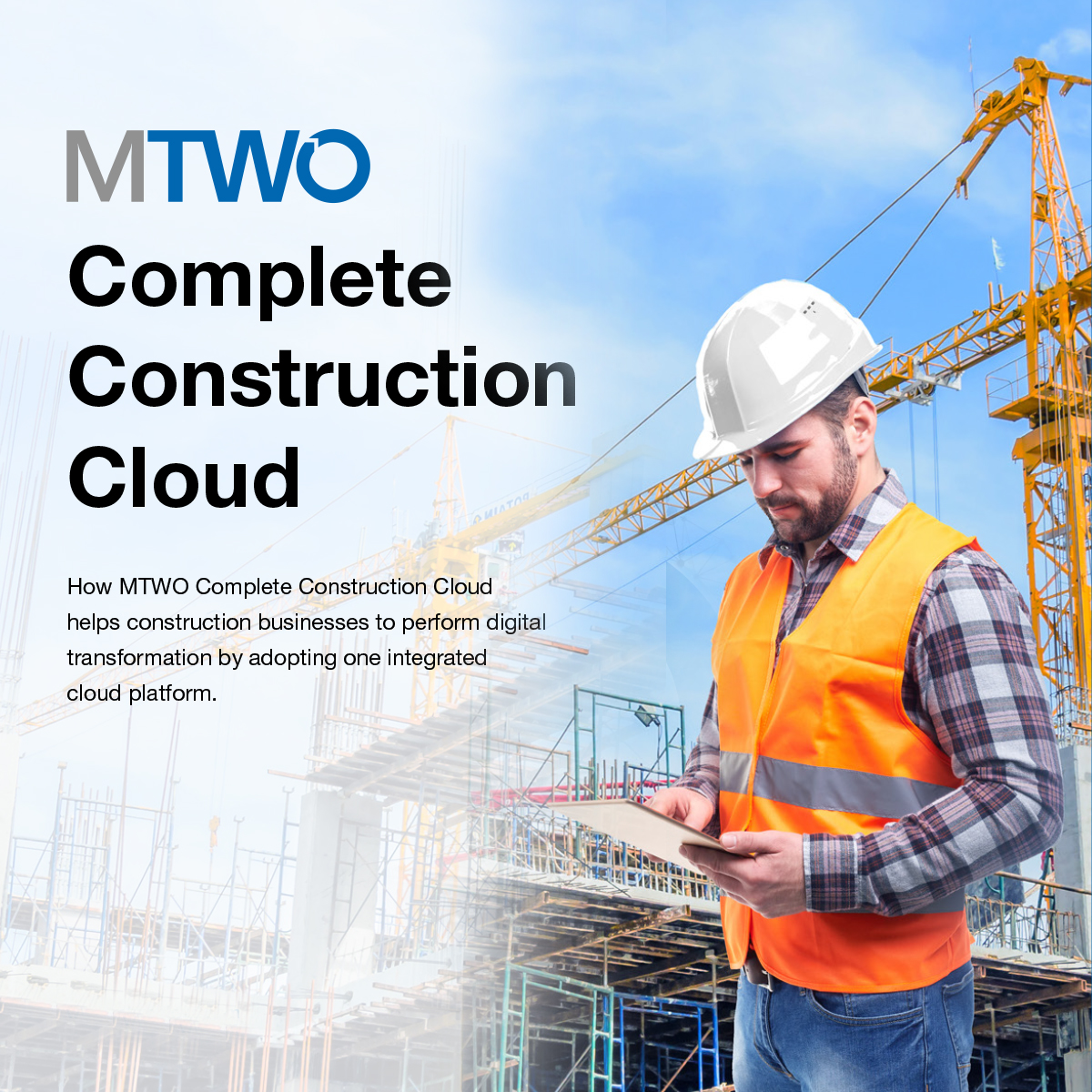
- The new normal of construction is digital
- MTWO Complete Construction Cloud
- One unified platform for project and enterprise digital management
- How to implement the Complete Construction Cloud
Download our free Ebook
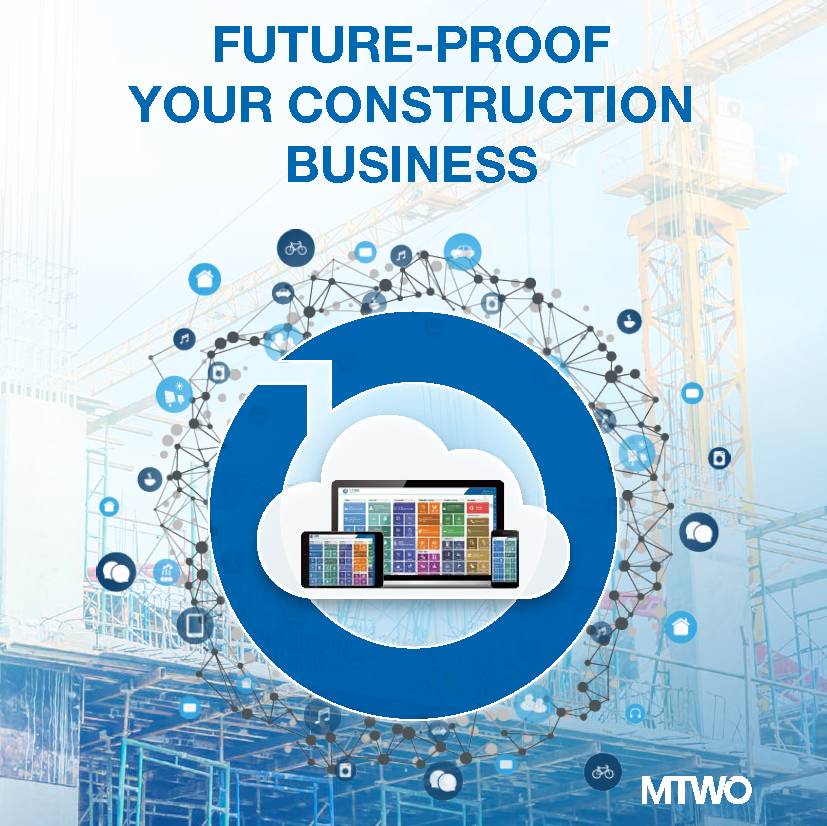
- Putting connectivity and scalability in the center of a long-term digital strategy.
- Adding sustainability to the digital agenda.
- Adopting integrated platform instead of disconnected point solutions.
Download our free Ebook
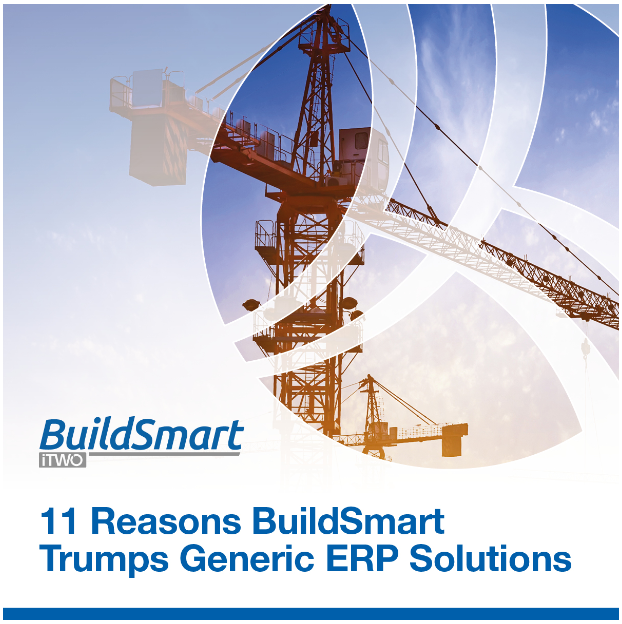
- The Inherent Flaws of Generic ERP
- Build Better with BuildSmart
- BuildSmart Highlights
- The Way Forward
Download our free Ebook
.jpg) Your business will benefit from:
Your business will benefit from:
- Huge time savings in BOQ pricing
- Better Project Planning
- Increase your ROI on all projects
- Detailed bid analysis
- Powerful reporting capabilities
Download our free Ebook
.png)
- What are these 5 pillars?
- Why are they essential to your change management plan?
Download our free Ebook
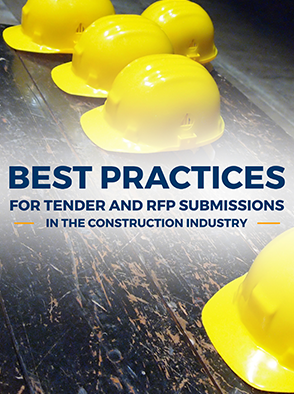
- Our tips for positioning to win construction contracts against the backdrop of a hungry and competitive construction industry.
Download our free Ebook

- How Technology addresses the challenges of the Construction Industry
- ‘One source of truth’ as a principle at use in the industry today that provides a totally integrated view of costs, offering a direct impact on outcomes.
- Man, Machine and Money – meaningful links in your construction company
Download our free Ebook
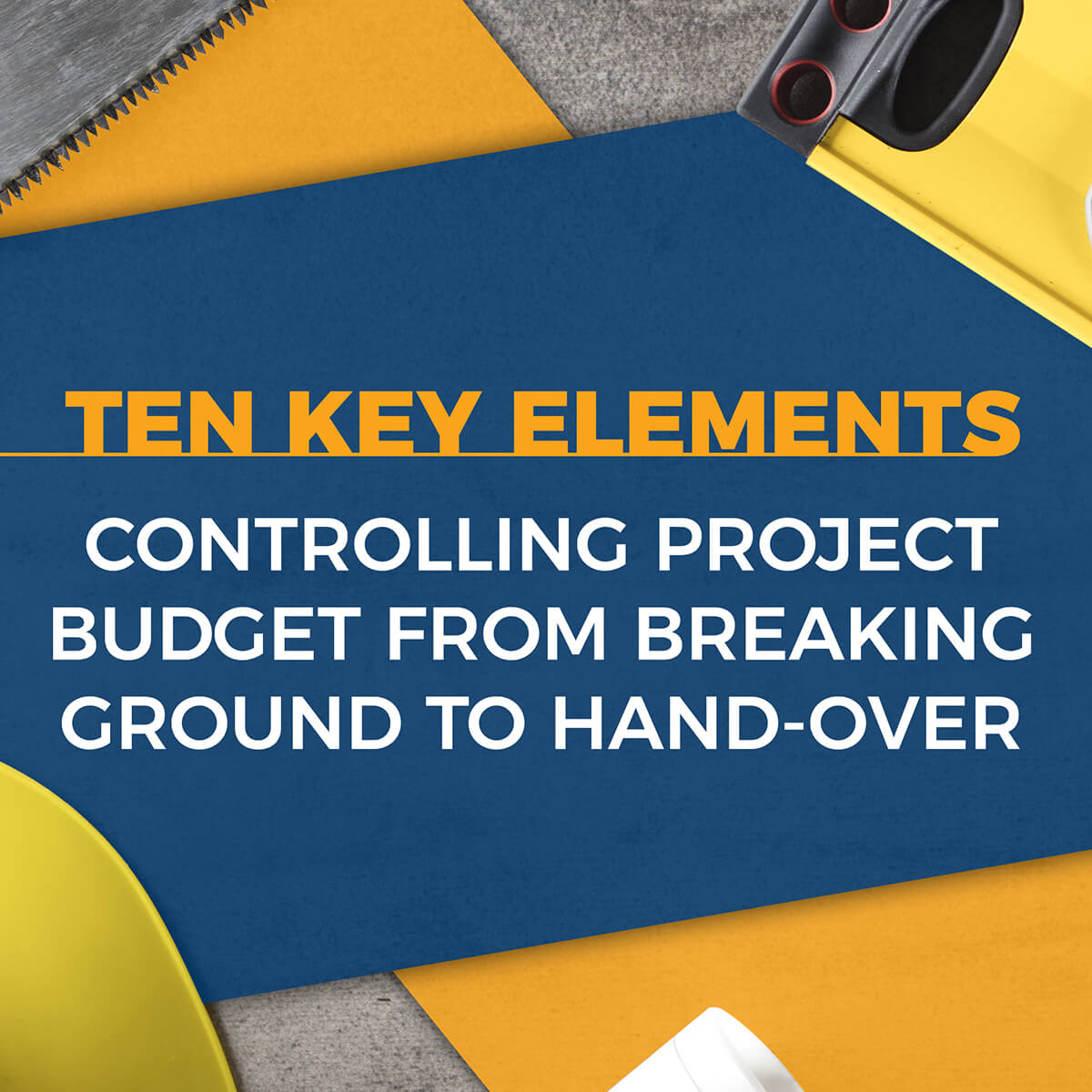
- Learn how to retrieve data that drives control
- Control budgets across projects
- Increase your ROI on all projects
DOWNLOAD OUR FREE TRAVEL PACKING LIST
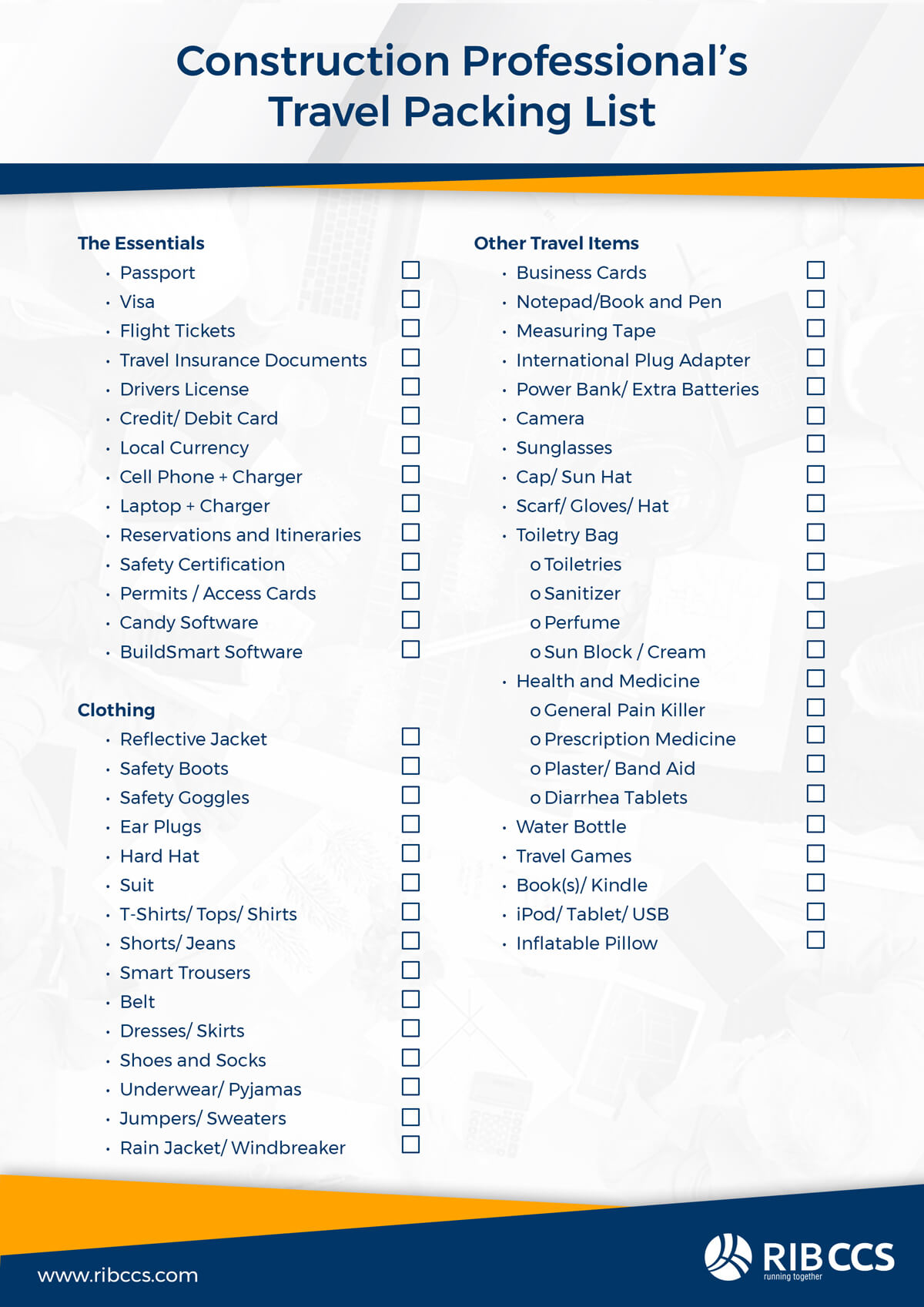 Don’t know what to pack for your
Don’t know what to pack for your next business trip?
We’ve got you covered!
Get It Now




